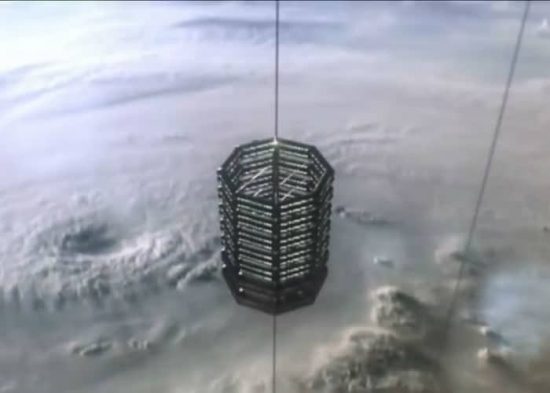EIFF 2019 Review: Aniara – “Unusual and highly compelling”
Directed by Pella Kågerman
Starring Emelie Jonsson, Bianca Cruzeiro, Arvin Kananian, Anneli Martini
Another day, another Edinburgh International Film Festival outing for me, today’s viewing on this first weekend of the festival kicking off with something even a major SF&F fan like me doesn’t come across too often – a Swedish science fiction film. Aniara is inspired by Nobel Prize-winner Harry Martinson’s 1956 poem, which was inspired by the Cold War era and the rapid proliferation of ever more power nuclear weapons and humanity’s seemingly mindless ability to use its intelligence to create new inventions that threatened our very existence.
The Aniara itself is a vast ship – really more a space city with engines – designed to take thousands of people in each trip, with comfortable cabins, swimming pools, bowling alleys, dance floors, shopping malls, restaurants and more. Think of a combination of hotel, cruise liner, major airport and shopping complex and you get the idea. She transports these thousands to a new home on Mars, swiftly, despite her city-sized bulk, with a voyage lasting only 23 days or so. We never see the full backstory, but the film is littered with references and inferences of the mess humanity has made of our own world, the only one in the whole solar system that we know could create and sustain life. Martinson’s original poem drew on the threat of Mutually Assured Destruction (MAD) during the nuclear stand-off of the Cold War, but here it is more suggestive of humanity ruining their own biosphere, a topic which obviously resonates with a contemporary audience (although the film was made before the latest Extinction Rebellion wave of environmental campaigning captured media attention).
‘MR’ (Jonsson) is a Mimarobe on the ship, and we see her first on the Space Elevator carrying huge numbers up to board the orbiting ship (for those of you not familiar with the concept, a Space Elevator is pretty much what is sounds like, a tether to the Earth at one end, to a platform in orbit at the other, elevator cars run up and down the cable, eliminating the expense and limited lifting power of rockets. Long an SF concept, they are seriously considered by NASA and others). There’s a beautifully handled combination of the awe of seeing the Earth from space, looking down upon a huge storm gathering below in the atmosphere, and the ingenuity of the Space Elevator itself, mixed with that feeling of the workaday familiarity of those who have done this too many times as work. Imagine how astonishing the sight of a speeding train once was to people, but how nowadays many of us slump against the window pane, half asleep as we commute – that’s MR as she rides the Elevator to her work on the ship.
MR’s role as a Mimarobe is akin to a form of therapy – she operates a semi-sentient computer system which can interact with human minds and memories. Within its space, she uses it to calm passengers, with the system gifting each individual their own beautiful image of Earth (before it was ruined), tailored to them, letting them leave their bodies for a few moments, the experience leaving them calmer, content. Normally a way of keeping civilians quiet during the trip to the Mars colony, this becomes vital when a tiny piece of space debris strikes the vessel, damaging the engine core which has to be ejected, leaving the crew unable to steer the Aniara, which is now off course. As the fear of being trapped in space, perhaps for several years, until they can correct their course by sling-shotting another celestial body grows, MR’s function becomes a form of respite care and the demands for her services soar, overloading both her and the sensitive computer.
As it starts to become clear the crew may be unable to create the manoeuvre they promised and their voyage may be far longer than thought, understandably, despite MR’s efforts, morale starts to break, people under extreme stress start to act in odd ways. The ship becomes a floating microcosm of every kind of humanity, from the eternal optimist who keeps trying for the best to the fatalistic (MR’s room-mate, The Astronomer, told her even before they were lost that life and humanity had no real purpose in the infinity of space), to those who crack and start to develop bizarre cults as a coping method. The Aniara, once the gateway to a New World, like the liners of old who took emigrants to the Americas in the last century, has now become its own closed system, adrift, the view from all windows an eternal night of space, the decks within now a pressure cooker for competing behaviours and neuroses as the weeks turn to months turn to years.
There are some obvious plotholes in Aniara which may irk SF fans – quite why a vessel this large and advanced doesn’t have emergency engines in case of the main reactor being damaged or failing is peculiar. As is the fact the highly trained crew cannot conceive of any other method of altering her course – the ship is able to alter gravitational fields but can’t affect its own trajectory? It doesn’t have basic reaction-control thrusters like any other space vehicle? Heck, you could even use some of the atmosphere (the ship produces its own) as a reaction gas for a jury-rigged thruster to push you back on course (think on the repairs the Apollo 13 crew made in space with an old sock and duct tape and then wonder why a huge ship with a whole engineering staff can’t figure out something this basic?).
But that kind of criticism, while perhaps valid in terms of plot flaws, is more nitpicking – this isn’t a film about the hard science of navigating in space, after all. This is a film about people, both at the individual level and at the societal level, and how they react to shock and stress, and the enclosed environs of this drifting ship are a perfect stage for this kind of emotional and psychological drama, and on that level alone Aniara scores highly in my view. We see everything from depression and suicide to religious fanaticism, authoritarianism, denial and more among the people now trapped on board Aniara, from the blood-soaked cabin of someone who couldn’t take it any longer to the mad partying and drinking and sex of others trying to forget their concerns, from rank despair at a meaningless existence to the hope of shared love and warmth, Aniara offers all of this richly human drama, viewed mostly through the eyes of MR. An unusual and highly compelling addition to world science fiction film.
Aniara will get a UK cinema release from 30th August and also on digital platforms via Arrowhead Films.















